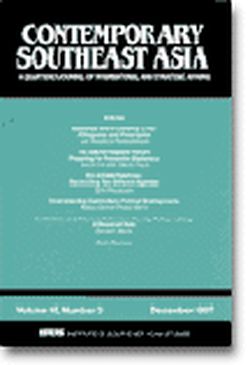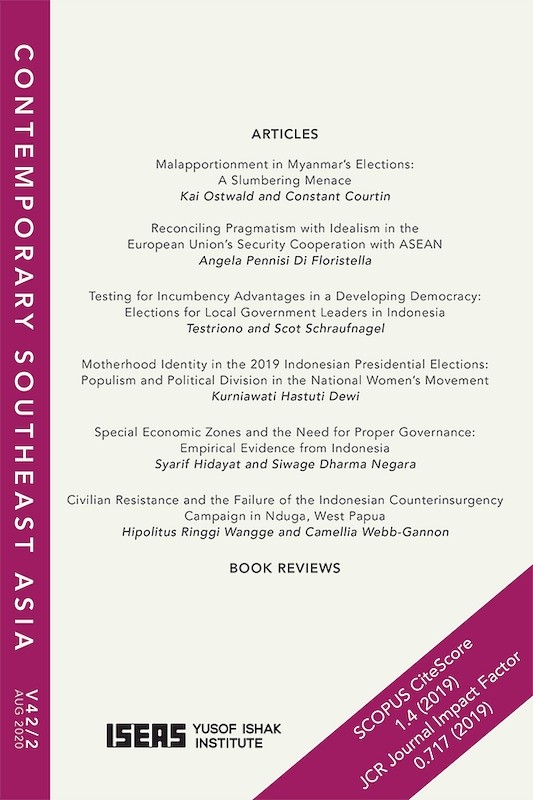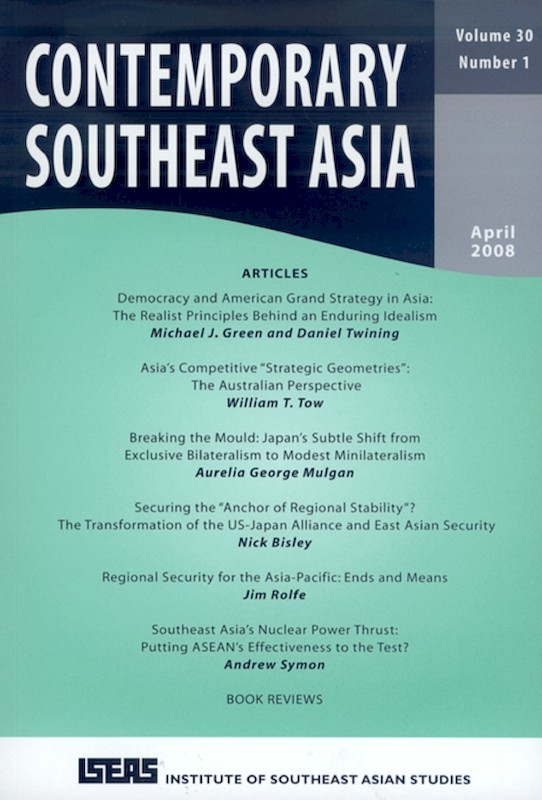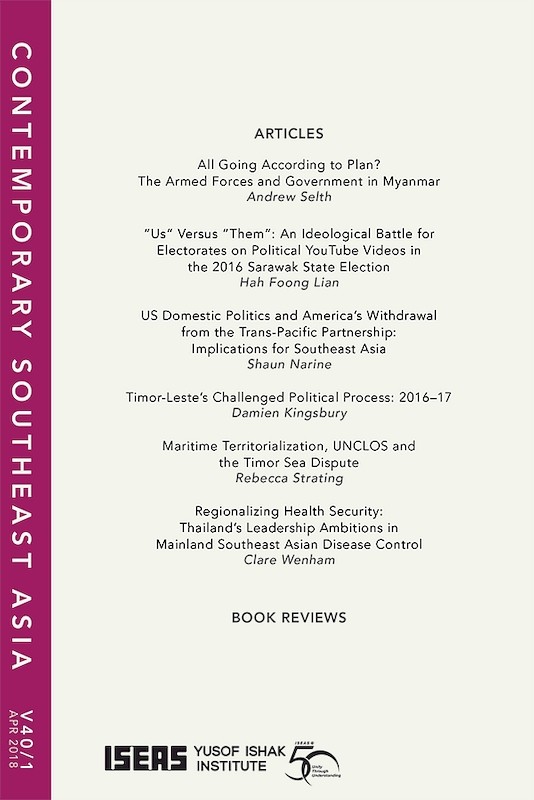Contemporary Southeast Asia: A Journal of International and Strategic Affairs Vol. 18/2 (Sept 1996)
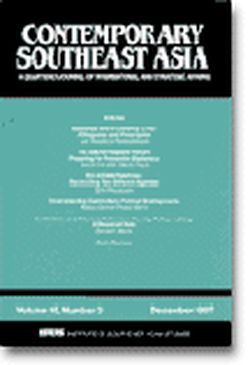
Date of publication:
September 1996
Number of pages:
117
Code:
CS18/2
Contents
-
Preliminary pages
- ARTICLES
-
The Asia-Pacific Region and the United Nations, by Ramesh Thakur, Samuel M. Makinda, authors see abstractHow can the changing profile of the Asia-Pacific in world affairs be best reflected in the United Nations system? On the basis of the relationship between economics and security, this article argues that East Asian states are developing the economic, military and political capacity to play a greater role in U.N. activities. Secondly, after conceptualizing the meanings of representation, it argues that Asian countries can broaden and deepen the representative base of the Security Council and other U.N. organs. Thirdly, East Asian states need to make a greater commitment to the United Nations in order to try to leverage the intrusive effects of Western ideas on human rights, state sovereignty and similar issues. Equally, the major powers must demonstrate the will, capacity and means to accommodate the Asian tigers so as to strengthen U.N. credibility and effectiveness.
-
The Cultural Challenge for a Concert of Asia, by Leif Rosenberger, author see abstractCompetition for resources may well be the greatest threat to Asian security. As U.S. hegemony fades, many Asian countries are engaged in an arms race to replace the outworn U.S. hegemony with some new form of a balance of power. A better strategy would be for Asians and Americans to build a Concert of Asia based on shared values. Admittedly, U.S. and Asian values are presently quite different. But there is nothing inevitable about cultural divergence and conflict. In fact, the spread of democracy, a new technological trajectory in Asia, the information revolution, the "CNN factor", the resurgence of ethics in world public opinion, and the globalization of the world economy are all powerful factors which contribute to a common knowledge base and cultural convergence between Asians and Americans. Finally, education and institutional flexibility are critical building blocks on the road to a Concert of Asia.
-
The Nexus Between Democracy and Stability: The Case of Southeast Asia, by Mohamed Jawhar Hassan, author see abstractAn examination of the nexus between democracy and stability is interesting for several reasons. Firstly, it has not received sufficient scrutiny unlike the nexus between democracy and development, or democracy and international peace. Secondly, stability seldom features in the calculations of passionate advocates of liberal democracy despite the occasionally terrible consequences of democratization on stability. Thirdly, stability is sometimes automatically identified with democracy and instability with non-democratic regimes. Fourthly, non-democratic governments view democracy as destabilizing. This article examines these and other factors in the relationship between democracy and stability, with particular reference to the prevailing situation in Southeast Asia. It suggests, among other things, that stability (as well as instability) can occur in both democracies and non-democracies, but sustainable security is better assured under democracies where good governance prevails.
-
Parties and Elections in Philippine Politics, by A B Villanueva, author see abstractOne of the legacies of the Marcos regime is the proliferation of political parties competing to win elections and control the government. It is uncertain if this development will lead to a multi-party system because only two of the six major parties share control of the legislative branch. The appearance of a two-party system can also be seen. This gives credence to the view that the party system in the Philippines is still evolving. Regardless of what will eventually arise, there is no evidence on which to base the speculation that the weak, undisciplined, non-ideological nature of these parties will change. In the election system, the role of money has a decisive influence on voting outcomes, so do voting blocs that are regionally and religiously based. Voting turn-outs are high largely due to popular interest in politics, but voting outcomes do not always reflect the people's choice if irregularities in the election process occur and ``goons, guns and gold" determine the results.
-
Democracy Lost? The Fate of the U.N.-implanted Democracy in Cambodia, by Joakim Ojendal, author see abstractThis article investigates the medium-term effects of the UNTAC operation in Cambodia in 1992--93. "Democracy" was introduced as a ready-made package with little consideration for Cambodian tradition and history. Many critics have argued that it is not possible to establish democracy "from above". The article looks at the debate on democratization in the Third World and briefly reviews the nature and fate of implanted democracy in Cambodia. From this standpoint, it discusses what role the debate on "Asian Values" may have on the political system in Cambodia and the interrelationship between economic development and political change. It concludes that economic development and democracy are interdependent and that the holding of free and fair elections in 1998 is of the greatest importance.
- BOOK REVIEWS
-
BOOK REVIEW: In Jeopardy: The Royal Navy and British Far Eastern Defence policy, 1945-1951 by Malcolm H Murfett, by Gerald Jordan, author
-
BOOK REVIEW: Australia and North-East Asia in the 1990s: Accelerating Change, by Xavier Furtado, author
-
BOOK REVIEW: Dynamics of Regional Politics: Four Systems on the Indian Ocean Rim by W Howard Wriggins with F Gregory Gause, III, Terence P Lyons, Evelyn Colbert, by Pushpa Thambipillai, author
-
BOOK REVIEW: Democracy and Violence in India and Sri Lanka by Dennis Austin, by Kripa Sridharan, author

